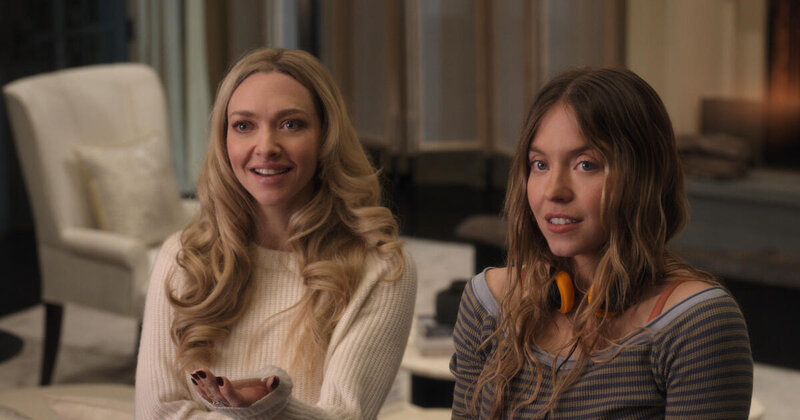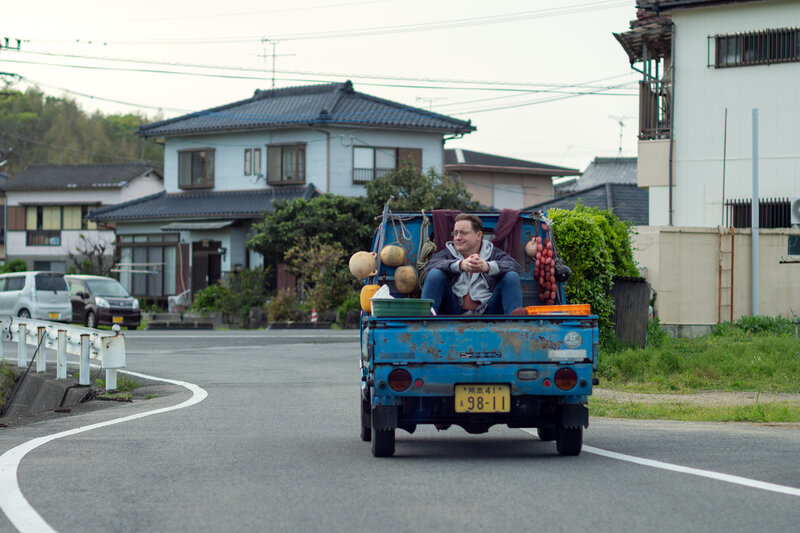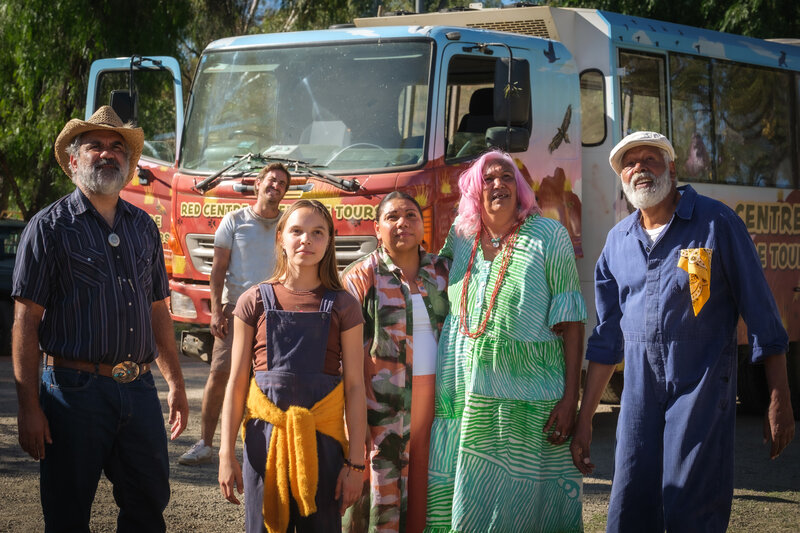The Melbourne International Film Festival screens until August 20. Here are a few highlights from the first week of the festival.
CALL ME BY YOUR NAME
Call Me By Your Name is a sensitive coming of age story set in a sun-drenched rural part of Italy in the 1980s and it deals with themes of adolescence, obsession, desire, repressed sexuality, infatuation and identity. It is based on the best-selling 2007 novel by Andre Aciman, and has been sensitively adapted to the screen by James Ivory, best known for his work with Ishmail Merchant. Elio Perlman (played by Timothee Chalamet, who played Matthew McCounaughey’s son in Interstellar) is the bright and curious 17-year old son of respected archaeologist (Michael Stuhlbarg). His days are spent reading, swimming and transcribing music, but it is a fairly dull and routine existence. Every summer an intern comes to stay with the family and work with his father. This year it is Oliver (Armie Hammer), a handsome and charming American. Elio finds himself drawn towards Oliver. It takes some time before the two realise they feel the same and eventually begin to act on their desires. Over the course of the summer their relationship becomes more intense and intimate. Call Me BY Your Name is the new feature from Italian director Luca Guadgnino, and is the follow up to A Bigger Splash, and it is his most mature, tender and restrained work to date. As with his previous film, a lot of the action here takes place near water – be it a swimming pool, the ocean, or a lake – which acts as a metaphor for the fluidity of life.
 Call Me By Your Name is an intimate and introspective drama, beautifully filmed and acted, and Gaudagnino’s sensitive direction deftly avoids any hint of melodrama. The sumptuous and seductive visuals have been provided by Thai cinematographer Sayombhu Mukdeeprom, who bathes the material in a warm palette. Mukdeeprom is also shooting Guadagnino’s remake of the horror classic Suspiria in Berlin. There is a palpable chemistry at work between Chalamet and Hammer that breathes life into the relationship. The precociously talented Chalamet is a revelation as Elio and brings intelligence and a sense of longing and curiosity to his performance, and he captures the pain, the confusion and insecurity of adolescence and first love. Hammer is largely cast against type here but he brings charm and warmth to his performance. Stuhlbarg is also good in a subtle and nuanced performance, and has a fine moment with his final heartfelt speech to Elio in which he offers wisdom and acceptance. The cast also includes Esther Garrel, who is the daughter of legendary French director Philippe Garrel.
Call Me By Your Name is an intimate and introspective drama, beautifully filmed and acted, and Gaudagnino’s sensitive direction deftly avoids any hint of melodrama. The sumptuous and seductive visuals have been provided by Thai cinematographer Sayombhu Mukdeeprom, who bathes the material in a warm palette. Mukdeeprom is also shooting Guadagnino’s remake of the horror classic Suspiria in Berlin. There is a palpable chemistry at work between Chalamet and Hammer that breathes life into the relationship. The precociously talented Chalamet is a revelation as Elio and brings intelligence and a sense of longing and curiosity to his performance, and he captures the pain, the confusion and insecurity of adolescence and first love. Hammer is largely cast against type here but he brings charm and warmth to his performance. Stuhlbarg is also good in a subtle and nuanced performance, and has a fine moment with his final heartfelt speech to Elio in which he offers wisdom and acceptance. The cast also includes Esther Garrel, who is the daughter of legendary French director Philippe Garrel.
A PRAYER BEFORE DAWN
This intense brutal prison drama is like Kickboxer meets Midnight Express. This unflinching, hard hitting and gritty and harrowing true story is set inside Thailand’s notorious Bang Kwang Central prison, better known as the infamous Bangkok Hilton. Like Midnight Express, which depicted Billy Hayes’ ordeal after being arrested and imprisoned for smuggling drugs in Turkey, A Prayer Before Dawn is based on the 2014 memoir written by expat Brit Billy Moore (played by Joe Cole, from TV series Peaky Blinders) detailing his experiences. Moore ekes out a living on Bangkok’s mean streets as a street fighter and small-time drug dealer, until he is arrested and imprisoned in one of Thailand’s toughest prisons. Confined to a crowded cell which he shares with heavily tattooed thugs, and living in squalid, filthy conditions, Billy often fears for his own safety. Down and dirty fights, gang rape, drugs, corruption are rife inside the prison where cigarettes are traded for favours. He survives his ordeal when he joins the prison boxing team and becomes a champion Muay Thai boxer. He also manages to maintain some vestiges of his humanity through a mutual attraction to ladyboy inmate named Fame (played by Pornchanok Mabklnag).
 Moore’s book has been adapted to the screen by writers Jonathan Hirschbein (Red Country) and Nick Saltrese (a veteran of TV soaps like Hollyoaks and police procedurals like The Bill). A Prayer Before Dawn is the second narrative feature from French director Jean-Stephane Sauvaire, and he doesn’t pull his punches with this gritty drama. He heightens the sense of danger and tension. Quite often the dialogue is not subtitles, which allows the audience to feel as confused and uneasy as Billy. The film serves up a brutal ballet of fights which have been choreographed by David Ismalone. The film has been shot by cinematographer David Ungaro who uses hand held cameras to get in close to the action and gives the material a claustrophobic feel. He gives the film a suitably dirty dingy aesthetic. The film is driven by the ferociously committed and physical performance from Cole who is put through the wringer. His gutsy performance captures the grit and determination of Moore to survive. And he brings plenty of swagger to his role. The real-life Billy Moore contributes a brief cameo here as Billy’s father. A Prayer Before Dawn avoids many of the usual clichés of the prison drama. This is tough going and many will find it hard to sit through.
Moore’s book has been adapted to the screen by writers Jonathan Hirschbein (Red Country) and Nick Saltrese (a veteran of TV soaps like Hollyoaks and police procedurals like The Bill). A Prayer Before Dawn is the second narrative feature from French director Jean-Stephane Sauvaire, and he doesn’t pull his punches with this gritty drama. He heightens the sense of danger and tension. Quite often the dialogue is not subtitles, which allows the audience to feel as confused and uneasy as Billy. The film serves up a brutal ballet of fights which have been choreographed by David Ismalone. The film has been shot by cinematographer David Ungaro who uses hand held cameras to get in close to the action and gives the material a claustrophobic feel. He gives the film a suitably dirty dingy aesthetic. The film is driven by the ferociously committed and physical performance from Cole who is put through the wringer. His gutsy performance captures the grit and determination of Moore to survive. And he brings plenty of swagger to his role. The real-life Billy Moore contributes a brief cameo here as Billy’s father. A Prayer Before Dawn avoids many of the usual clichés of the prison drama. This is tough going and many will find it hard to sit through.
GOOD TIME
The low-budget indie crime drama Good Time is the latest film from the Safdie brothers (Benny and Joshua), whose films like Daddy Longlegs often explore the struggles of losers who live on the edges of society. This is a gritty and downbeat black comedy and heist drama with plenty of energy.
Connie Nikas (played here by Twilight’s Robert Pattinson, cast against type) is a small time crook who robs a bank with his mentally handicapped brother Nick (played by director Benny Safdie). But Nick is caught and sent to Rikers. While Connie desperately tries to raise the $10k money for his bail, Nick is badly assaulted and ends up in hospital under police guard. Connie sneaks into the hospital to rescue him but in a case of mistaken identity he takes another heavily bandaged prisoner inside. Connie spends the rest of the night on the run as he tries to reconnect with his brother. Connie has to travel with Ray (Buddy Duress) and Crystal (Tallah Webster) a 16-year old black girl whose grandmother tries to help Connie. A series of bad decisions lead him from one awkward situation to another.
 The title itself is quite ironic as this is a rather downbeat mix of drama and black comedy that follows Connie on his violent, twisting nocturnal journey through a pitiless New York cityscape. A pervasively downbeat mood permeates the material. Some of this may remind audiences of Martin Scorsese’ After Hours. The script has been written by Josh Safdie and their regular editor and collaborator Ronald Bronstein, and it unfurls with plenty of energy. The Safdies play around with the genre tropes, pushing the material in unexpected directions. Safdie brings a grim realism to the material which is reminiscent of the gritty Hollywood crime dramas of the early 70s and that new wave of films from young filmmakers like Sorsese, Coppola, et al. The film was shot guerilla-style over a number of locations. The neon lit cinematography from Sean Price Williams and his use of hand held cameras effectively gives the film an energetic feel. The frenetic action is accompanied by a throbbing synthetic score from Oneohtrix Point Never.
The title itself is quite ironic as this is a rather downbeat mix of drama and black comedy that follows Connie on his violent, twisting nocturnal journey through a pitiless New York cityscape. A pervasively downbeat mood permeates the material. Some of this may remind audiences of Martin Scorsese’ After Hours. The script has been written by Josh Safdie and their regular editor and collaborator Ronald Bronstein, and it unfurls with plenty of energy. The Safdies play around with the genre tropes, pushing the material in unexpected directions. Safdie brings a grim realism to the material which is reminiscent of the gritty Hollywood crime dramas of the early 70s and that new wave of films from young filmmakers like Sorsese, Coppola, et al. The film was shot guerilla-style over a number of locations. The neon lit cinematography from Sean Price Williams and his use of hand held cameras effectively gives the film an energetic feel. The frenetic action is accompanied by a throbbing synthetic score from Oneohtrix Point Never.
Connie is a loose cannon who lurches from one bad situation to another and his sense of desperation grows. This is a strong performance from Pattinson who is cast against type and almost unrecognisable here with his beard, his tough swagger and his bleached blonde hair. Like his Twilight co-star Kristen Stewart, Pattinson seems to be making some interesting choices, and this is one of his best performances, more gutsy and uncharacteristic. The strong cast also includes a cameo from Jennifer Jason Leigh as Connie’s girlfriend Corey, and Captain Phillips star Barkhad Abdi as a hapless security guard at a theme park. Safdie himself brings a naivete and vulnerability to his performance as the damaged and psychologically scarred Nick.
NOTHINGWOOD
America has Hollywood, India has Bollywood, and Afghanistan has Nothingwood. Afghanistan has no film industry to speak of, and a lack of finance and experience for filmmaking. Despite that though, self-made filmmaker Salim Shaheen has been making movies for thirty years. Shaheen was interested in the cinema from a young age, and was often beaten by his brothers for sneaking off to the cinema. Dubbed the “Ed Wood of Afghanistan”, he is a prolific filmmaker, who has made over 110 films in his career. His movies are basically amateurish c-grade action adventures that seem largely improvised and are full of action, fights, and shot on little to no money.
 French-Swedish filmmaker Sonia Kronlund (the French documentary television series Toutes les teles du Monde) is a veteran radio journalist who has journeyed into Afghanistan on many occasions, and has a familiarity with some of the country’s traditions and culture. She has gained access to Shaheen and his entourage for this fly-on-the-wall documentary that follows Shaheen into some remote and potentially dangerous regions as he literally works on four movies at the one time. Shaheen is an exuberant and flamboyant larger than life figure, full of confidence in his own abilities and playing up to his loyal band of enthusiastic fans. It is obvious that Kronlund has a deep affection for Shaheen who is trying to bring a bit of joy and entertainment to this battle-scarred country whose populace never get an opportunity to see movies from the west. However, there may be many in the audience who may find him a bit of a narcissistic clown.
French-Swedish filmmaker Sonia Kronlund (the French documentary television series Toutes les teles du Monde) is a veteran radio journalist who has journeyed into Afghanistan on many occasions, and has a familiarity with some of the country’s traditions and culture. She has gained access to Shaheen and his entourage for this fly-on-the-wall documentary that follows Shaheen into some remote and potentially dangerous regions as he literally works on four movies at the one time. Shaheen is an exuberant and flamboyant larger than life figure, full of confidence in his own abilities and playing up to his loyal band of enthusiastic fans. It is obvious that Kronlund has a deep affection for Shaheen who is trying to bring a bit of joy and entertainment to this battle-scarred country whose populace never get an opportunity to see movies from the west. However, there may be many in the audience who may find him a bit of a narcissistic clown.
The documentary is a look at the power of cinema to sometimes transform lives. We also meet his scriptwriter Zaki Entizar and his regular actor, the effeminate Qurban Ali, who often plays the female roles forbidden to female actors. Cinematographer Alexander Nanua (Toto and his Sisters) captures the stark vistas of regional Afghanistan. However, the film is a little too long and repetitive. There is very little insight into Shaheen or the Afghan film industry itself. The documentary The Flickering Truth was far more revealing.
JUNGLE
The opening night film for MIFF was generic survival thriller Jungle, directed by Greg McLean, which is based on the true story of Israeli adventurer Yossi Ghinsberg’s ordeal when he became lost in the Bolivian jungle for three weeks. His ordeal was detailed in his book, which was adapted for the screen by script writer Justin Mungo (Spear).
In October 1981, Ghinsberg (Daniel Radcliffe) was backpacking through South America when he joined American photographer Kevin (Alex Russell, from Goldstone) and wimpy teacher Marcus (Joel Jackson) to journey inland. With their guide, the enigmatic Karl (Thomas Kretschmann, from The Pianist), they set out for an adventure. But after a frightening experience with river rapids, the party split up, with Yossi and Kevin electing to continue the journey along the river. Karl and Marcus decided to go overland. Eventually Yossi and Kevin became separated, and for 19 days Yossi wandered through the jungle, enduring starvation, bad weather, creepy crawlies, hardships and even hallucinations.
 Gruelling and harrowing, Jungle is a true story of survival against the odds, and takes its place alongside other survival dramas like Alive (the true story of the soccer team stranded in the Andes following a plane crash) and Cast Away with Tom Hanks. The film marks something of a change of pace for McLean, who is best known for his Ozploitation horror film Wolf Creek, and while the material is a little cliched, he handles it with a sense of restraint. Some of the dialogue is a little clunky though. Cast against type, Radcliffe, who is best known for playing the boy wizard Harry Potter, gives a committed and physical performance here as his character is put through the wringer. He manages to effectively convey the physical toll the experience took on his body and mind. There are a few gross out scenes along the way which he handles with aplomb. Russell is a rising star of the screen and he does what he can with an underdeveloped character.
Gruelling and harrowing, Jungle is a true story of survival against the odds, and takes its place alongside other survival dramas like Alive (the true story of the soccer team stranded in the Andes following a plane crash) and Cast Away with Tom Hanks. The film marks something of a change of pace for McLean, who is best known for his Ozploitation horror film Wolf Creek, and while the material is a little cliched, he handles it with a sense of restraint. Some of the dialogue is a little clunky though. Cast against type, Radcliffe, who is best known for playing the boy wizard Harry Potter, gives a committed and physical performance here as his character is put through the wringer. He manages to effectively convey the physical toll the experience took on his body and mind. There are a few gross out scenes along the way which he handles with aplomb. Russell is a rising star of the screen and he does what he can with an underdeveloped character.
The film has been shot on location in Colombia and Bogota, which lends authenticity to the experience, as well as in rainforest near Queensland’s Mount Tamborine and the Warner Bros studios on the Gold Coast. Stefan Duscio’s widescreen cinematography captures the natural beauty of the locations, and enriches the film’s visuals in much the same way he enlivened Canopy. He uses lots of hand held camera work to immerse us in the white-water rafting sequences. Some of the white-water sequences will remind audiences of the classic survival thriller Deliverance, and will develop a certain sense of anticipating the worst, which never quite comes to eventuate.
Greg King
Other reviews you might enjoy:
- Good Time – movie review
- A Prayer Before Dawn – movie review
- Brisbane International Film Festival 2017 – preview

David Edwards is the former editor of The Blurb and a contributor on film and television





